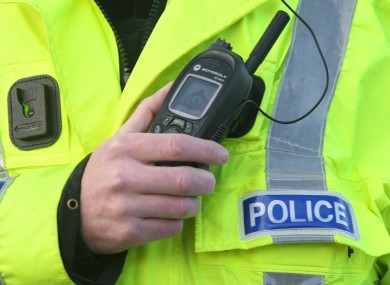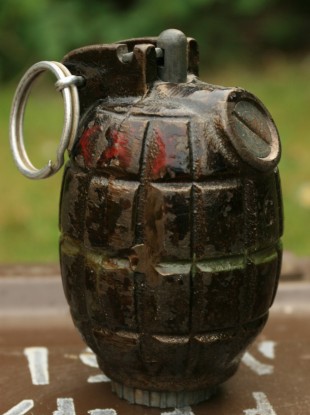Journalist Mayo transplant recipient tells of her joy as donors kidney gives her the gift of life

TRANSPLANT patient Regina Hennelly above last night spoke of how it felt like “waking from a 100-year deep sleep” after she received the life-saving gift of a donor's kidney.
Ms Hennelly (29), a journalist from Castlebar, Co Mayo, told how she got a phone call from the transplant co-ordinator at 6.30am on Friday to tell her they had a kidney for her and to make her way swiftly to Beaumont Hospital in Dublin.
The young author had last week made headlines after she criticised delays in the (HSE) in issuing a renewed medical card.
Speaking to the Irish Independent from her hospital bed, Ms Hennelly said it had all worked out for her in the end as she received her medical card and the donor kidney in the same week.
Now she is looking forward to throwing a “ridiculously big” 30th birthday party on March 8 next and to travelling.
After spending two-and-a-half years on the transplant waiting list and on dialysis, her condition had begun to deteriorate.
“I felt no panic after getting the call, I just knew I had to go for it. I couldn’t be much worse off than I was,” she said.
Her friend, Nicola Rogers, accompanied her to the hospital from her apartment in Rathfarnham, Dublin, and by 6pm on Friday she was recovering from the four-hour operation.
“The kidney seemed to take straight away. The anaesthetic was not pleasant but as soon as I woke I instantly felt more alert,” she said.
“The brain and everything is sluggish, you are slower to react on dialysis. It was like waking from a 100-year sleep.”
The fit young woman was shocked to learn in 2008 that she had a form of chronic kidney disease. By June 2009, her condition had begun to deteriorate and she had a tube inserted into her stomach to allow her perform DIY dialysis at home.
“That was the worst thing about it. It was there all the time and I really hated it,” she said.
Ms Hennelly last night said her thoughts were with the donor and their family.
“My donor is on my mind. I won’t know who that person is or who they were but they gave me this great gift of life. It is so fantastic that people do that and can find the strength to do that,” she said.
An Investigation is launched into the murder
Of a Donegal man in Glasgow


POLICE IN SCOTLAND have launched an investigation into the murder of an Irishman on the street outside his home in Glasgow over the weekend.
William McKeevey, a lorry driver from Malin Head in Donegal, was attacked by two men on Melville Street, Pollokshields, on Sunday.
Police say that the 57-year-old, who had moved to Scotland five years ago, was subjected to a “sustained and violent” attack as he returned from a night out, reports the BBC.
McKeevey was taken to the Victoria Infirmary where he died from his injuries.
McKeevey’s partner heard the disturbance from the couple’s ground floor flat but did not realise he was being attacked, RTE reports.
The police officer leading the inquiry, Det Ch Insp David Gailey, said: “Mr McKeeney suffered massive injuries to his head and body in what can only be described as a brutal and sustained attack.”
“To speculate on a motive at this time is completely unhelpful, and indeed may hinder our investigation, however, we are keeping an open mind as to why it happened,” he added.
Gailey described McKeevey as a “popular man who was ready to help anyone he could”.
The Department of Foreign Affairs is providing consular support to his family.
Unexploded grenades discovered at a Grange Co Sligo home

A Mills grenade similar to those discovered at a Sligo home
TWO UNEXPLODED GRENADES were discovered at a home in Sligo this afternoon, and had to be destroyed by an Army bomb disposal team.
The grenades, dating from the early 20th century, were Mills Type 36 devices. They were discovered during excavations at the home in the village of Grange.
The Mills Type 36 was a standard grenade widely used by armed forces in Britain and around the world from 1917 until the early 1980s.
After emergency services were called, an Army Bomb Disposal Unit arrived at the home around 2.15pm. The soldiers removed the two grenades to a safe location and made them safe in a controlled explosion.
The scene was declared safe at 3.15pm.
The scene was declared safe at 3.15pm.
Irish homes water charge will create some 4,000 new jobs Minister Phil Hogan says
Up to 90 per cent of Irish homes will face water charges by 2014, but don’t worry if you’re already struggling to cope with bills because the water charge will create 4,000 jobs. Environment Minister Phil Hogan seems to think that this will cheer everyone up, but it could just be a way to avoid criticism of the controversial charge.
The Irish Daily Star reports that the installation of water meters in Irish households will create up to 2,000 jobs for plumbers and construction workers. An estimated 2,000 more people will be employed to run the service when the new State body, Irish Water, is up and running.
This is great news. We are all for more jobs. We support Irish jobs. But announcing that these jobs will only come into effect if we are willing to fork out money for water seems like nothing more than a way to take the focus off the charge and blind us with the hope of more employment.
Any job news is good news, but with people already struggling to pay bills the water charge will add another burden when it comes to making ends meet. Are we essentially paying the Government to have the opportunity of employment?
It is unknown how much each household will have to pay once the charges come into effect. Reports that the water could cost a household up to €400 have been dismissed as “purely speculative” by the Department of the Environment.
“The rollout of the water metering programme will result in direct employment for approximately 2,000 much-needed good quality jobs for the construction sector,” said Phil Hogan.
PricewaterhouseCoopers have estimated that an investment of €600 million a year will be required to run our water and waste system in the future. This is more than the exchequer can actually afford, so as a result, the cost has fallen back on the householder and the water charge will be used to fund the investment.
Installation of water meters in households is due to get underway around the country before the end of this year.
No comments:
Post a Comment